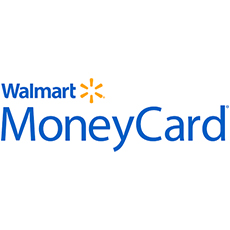Best Prepaid Cards
Prepaid cards are a smart option if you want the convenience of paying with plastic without needing a bank account. If you’re comparing options, use our guide to discover the best prepaid card for you. Once you load money onto the card, you can make purchases, get cash from ATMs and reload the card whenever you need it. Some of the top cards even offer cashback rewards.
- Our recommendations are based on what reviewers say.
- 4,337,775 reviews on ConsumerAffairs are verified.
- We require contact information to ensure our reviewers are real.
- We use intelligent software that helps us maintain the integrity of reviews.
- Our moderators read all reviews to verify quality and helpfulness.
Compare Top Prepaid Debit Card Companies | ||||||
|---|---|---|---|---|---|---|
Offers prepaid debit card with no minimum balance requirement. No credit check. No activation fee for online orders. Reload card with direct deposit, a mobile check, reload locations or funds transfer. | Learn More Call Center Open (855) 723-3030 | |||||
Offers prepaid debit cards for $0 purchase price. Charges a $4.95 monthly fee. Free withdrawals at Chase ATMs and free cash reload. No wire transfers. Minimum initial load of $25. Access to Chase Mobile banking and account alerts. | Chat with a ConsumerAffairs decision guide Live agent | |||||
Gold Visa Prepaid Card earns cash back rewards plus 3% APY. Charges a $9.95 monthly fee and $3 ATM fee. No overdraft fees. Free withdrawals and cash deposits at major retailers. Pay rent or expedite bill payments online. |  | Chat with a ConsumerAffairs decision guide Live agent | ||||
Provides Serve, Serve Free Reloads and Serve Cash Back options. Purchase price up to $3.95. Charges monthly fees up to $7.95 and ATM fees up to $2.50. Earn up to 1% cash back. Offers travel protection and 24/7 customer service. | Chat with a ConsumerAffairs decision guide Live agent | |||||
Offers business and personal gift cards from $25 to $3,000. Funds never expire. No usage fees. Not reloadable. Provides dozens of designs and customized messages. Use in stores and online. |  | Chat with a ConsumerAffairs decision guide Live agent | ||||
Sells prepaid cards and gift cards. Charges a $1.95 domestic ATM cash withdrawal fee. Directly deposit payroll, government benefits or tax return funds. Service fees may apply to reload at stores. No ATM access for gift cards. |  | Chat with a ConsumerAffairs decision guide Live agent | ||||
Track transactions 24/7 with mobile app. 2% APY with savings up to $1,000. Earn up to $75 cash back each year at Walmart. Free family accounts up to four people. No monthly fee with balance over $1,000. |  | Learn More | ||||
Offers a convenient way to receive federal benefit funds. No cost to sign up and no monthly fees. Charges ATM cash withdrawal fees up to $0.85 per transaction. Manage your money from your mobile device through the app. | Chat with a ConsumerAffairs decision guide Live agent | |||||
Manage your money easier with Green Dot Prepaid Cards. ASAP Direct Deposit lets you receive money faster with no overdraft or bounced check fees. Use anywhere in the United States that accepts Visa. |  | Chat with a ConsumerAffairs decision guide Live agent | ||||
Card must be linked to PayPal account. No purchase fee. Charges a monthly plan fee of $4.95. Earn cash back through the PayPal rewards program. Check your account balance, review transactions and load checks through the app. |  | Chat with a ConsumerAffairs decision guide Live agent | ||||
What are the best prepaid debit cards?
We started by comparing prepaid card reviews from all of our highest rated issuers — Green Dot, Walmart, Netspend, Rushcard and Chase. To select our favorites, we gave preference to cards with low fees, multiple reload options, special perks and widespread availability. All of our top picks are authorized by ConsumerAffairs.
Netspend Premier prepaid debit card
|
|
Premier is an upgrade from Netspend’s starter prepaid debit card. Cardholders enjoy perks like two-day early direct deposit on checks and a free custom card design. It includes purchase protection, which is a rare feature on prepaid cards. We also like that there’s no enrollment or activation fee.
- Card purchase costs: $0
- Monthly fee: $5
- Per purchase fee: $0
- Cash reload fee: Free for direct deposit. In-store reloading fees are up to $3.95
- ATM withdrawal: Netspend waives the first ATM withdrawal fee per calendar month, but cardholders pay $2.50 per withdrawal after that, plus any additional ATM operator fees
- Other fees: Netspend charges a $5.95 servicing fee to cancel an accoun, an inactivity fee of $5.95 per month after 90 days without use and a $1 fee for declined ATM transactions
You can reload the card at more than 130,000 Netspend reload network locations. Funds from direct deposit, bank transfers, PayPal, tax refunds and government benefits can also be applied to the card. You can also deposit funds through the Netspend app, which has check capture capabilities.
Walmart Money Card
|
|
Cardholders get the most out of the Walmart Money Card when they use it at Walmart. Cardholders earn 3% back when they shop at Walmart.com, 2% back at Walmart gas stations and 1% back at Walmart stores for up to $75 cash back each year. Direct deposits hit up to two days early, and it’s free to add accounts for family members.
- Card purchase costs: $1
- Monthly fee: $5.94, but Walmart waives the fee if cardholders deposit $1,000 or more each month
- Per purchase fee: $0
- Cash reload fee: Up to $5.95
- ATM withdrawal: $2.50, but cardholders can withdraw cash for free at Walmart stores
- Other fees: There’s no inactivity fee, but cardholders are responsible for a 50-cent ATM balance inquiry fee. Paper checks cost $5.95 for a set of 12
Reloads are free through the Walmart MoneyCard app or at Walmart stores. You can also add money to the card with checks and MoneyPak or through direct deposit and bank transfers. With Walmart Rapid Reload, funds are typically available within 10 minutes.
Green Dot Load & Go prepaid debit card
|
|
Green Dot Load & Go is ideal for someone who doesn't rely on their card for everyday purchases. There’s no monthly fee, but cardholders pay $1.50 per purchase. Since it’s a Visa, the card is widely accepted. Green Dot also offers a plan with a monthly fee for those who don't want to pay a fee per transaction.
- Card purchase costs: $3.95
- Monthly fee: $0
- Per purchase fee: $1.00
- Cash reload fee: Up to $5.95
- ATM withdrawal: $2.50
- Other fees: Inactivity fee is $1.95 per month after 12 months without spending or loading. ATM and teller cash withdrawal fees are $2.50. There’s also a 50-cent fee for ATM balance inquiries. Paper checks cost $5.95 per set of 12
You can purchase and fund Green Dot prepaid debit cards at Walgreens and Rite Aid stores. Cardholders can make secure deposits through the Green Dot app’s check capture feature, reload at the register or deposit funds through MoneyPark.
What is a prepaid card?
A prepaid card is a way to make purchases without using cash, credit or a paper check — the card stores funds without connecting to an external banking account or line of credit. Prepaid cards, also called stored-value cards, include gift cards and reloadable debit cards. The more significant difference between a prepaid or reloadable debit card and a credit card is that prepaid cards only give the cardholder access to their balance of preloaded funds.
- Prepaid card vs. gift card: Gift cards are closed-loop prepaid cards issued by merchants. Gift cards have a fixed amount of funds that can be spent within that merchant’s network. Semi-closed system prepaid cards are issued by a third party and can be used at multiple locations. Neither prepaid cards nor gift cards require a checking account.
- Prepaid card vs. debit card: Prepaid cards and debit cards are similar in that you can only spend the money you already have. Unlike prepaid cards, a debit card is linked to a checking account. Cardholders don’t need a bank account to get a prepaid card. Unlike bank debit cards, prepaid cards usually have an inactivity fee if you don’t complete a transaction within a certain period of time.
- Prepaid card vs. credit card: Even though they look similar, prepaid cards and credit cards are very different. Credit cards build credit and come with many features and rewards that aren’t available with prepaid cards. A prepaid card only lets you spend funds that you’ve loaded onto the card. Unlike credit cards, prepaid cards don’t incur interest charges.
| Prepaid card | Gift card | Debit card | Credit card | |
| Linked to bank account | ||||
| Builds credit | ||||
| ATM access | ||||
| Cash advances | ||||
| Rewards programs |
| Prepaid card | |||||
| Gift card | |||||
| Debit card | |||||
| Credit card |
How do prepaid cards work?
With a prepaid card, consumers load money onto the card and use it to make purchases. A prepaid card works like a debit card, but a prepaid card isn’t connected to a checking or savings account. Prepaid cards and reloadable debit cards don’t build credit, but some earn rewards and come with other benefits, such as fraud protection and online debit card banking services.
Most prepaid debit card issuers allow funds to be loaded and reloaded by direct deposit, cash or bank transfer. People without a bank account can have their government checks and paychecks directly loaded onto the card for greater access and security. Cardholders can load cash onto a prepaid card at retail stores for a fee. Many prepaid debit cards waive reload fees if the cardholder opts into direct payroll check deposits.
Prepaid cards are typically associated with a national card network, such as Visa, MasterCard, American Express or Discover. You can use the card wherever its network is accepted. Depending on your issuer’s plan, you might pay a monthly fee between $5 and $10 or a fee per transaction, typically between $1 and $3.
How to get a prepaid card
A prepaid card is relatively easy to get — there is no credit check or minimum balance requirement. You can buy prepaid cards at most grocery and convenience stores, online and over the phone. Some banks and local credit unions also sell prepaid cards. If you buy the card online, you may be issued a virtual card or receive a physical card in the mail at a later time.
Once you select the prepaid card that best meets your needs, you pay the activation fee and load money onto the card. Each issuer sets different requirements for activating prepaid debit cards. Some require photo identification and charge an activation fee up to $10 for loading the initial funds onto the card. Once you pay the card’s purchase price, you have options for funding the initial amount, including:
- Electronic transfer
- Retail store cash deposit
- Employer direct deposit
- Reload card (MoneyPak)
Cardholders must register their prepaid cards after purchase if the FDIC or NCUA insures it, according to the Consumer Financial Protection Bureau (CFPB). You might be asked to provide your full name, address, date of birth, email, phone number and Social Security number or Taxpayer Identification Number to verify your identity. Some issuers provide access to instant debit cards online that use virtual card numbers.
How to use a prepaid card
You use a prepaid card to make purchases in stores, shop online and pay bills. Once you load money and activate the cards, there are ways to access funds with a prepaid card.
- ATM withdrawal: Prepaid debit cards let you withdraw cash at an ATM. ATM operator fees for withdrawals vary based upon the provider and your card policy.
- Point-of-sale transaction: Simply swipe or insert the card into a retailer’s reader or type in the number to complete an online transaction. Stores that accept debit transactions often allow shoppers to receive cash back on a purchase. This may let you withdraw money without paying the fees associated with an ATM withdrawal. There may be a cash back withdrawal limit from the retailer.
- Electronic transfer: It’s easy to transfer funds between accounts if you link your prepaid account with another bank account. In some cases, it may be possible to send money without linking it. Some cards also allow transfers to a Cash App, Venmo or PayPal account, for example.
Prepaid card advantages and disadvantages
Prepaid cards make a lot of sense for some people, especially for those who live in underbanked communities. Using a prepaid card is often safer and more convenient than carrying around cash, but cardholders don’t enjoy the same perks and those with even entry-level credit cards.
Prepaid card advantages
Prepaid debit cards let you enjoy the convenience of paying by card without a line of credit or a bank account. Carrying the plastic card is also safer than having cash in your pocket. Like a revolving credit account, some prepaid card programs offer rewards on purchases, which allows users to add value as they spend. Additional prepaid card benefits include:
- Easy to get: Prepaid cards are easy to get even if you don’t have a credit or a bank account. Loading funds onto a card is usually a simple process with several available options. You can directly deposit a payment onto the card, load funds at a brick-and-mortar retailer or transfer money from a checking or savings account.
- Better budgeting: Some consumers use prepaid debit cards as a money management tool. Parents can easily give their children spending money for college or a high school allowance. The prepaid card may be an educational money management tool for families.
- Safer online shopping: Prepaid cards can be used anonymously to minimize the risks associated with online shopping. Since the prepaid card is not a credit card, users with poor credit can secure a prepaid debit card to shop online.
- Asset protection: There are times when legal and financial issues affect your ability to access your funds. A prepaid debit card gives you access to funds for bills and other expenses during negotiations. Seek legal and financial advice before using a prepaid debit card during an audit, bankruptcy, divorce or other legal proceedings.
- Travel spending: One of the major benefits of credit and debit cards is the ability to purchase anything, anywhere, without worrying about currency exchanges. Like traveler's checks, international prepaid debit cards have protections against unauthorized transactions. This means you may be able to recover funds if you have a problem overseas.
Prepaid card disadvantages
As you consider a prepaid debit card, it’s crucial to be aware of their drawbacks. Some of the most common reasons people end up regretting their prepaid cards are high fees, inconvenient funding and reloading methods. Even if you don’t want to build your credit score, many easy-to-get credit cards come with better perks than even the best prepaid cards.
- No credit: You can’t use a prepaid card to access a line of credit or improve your credit score. Since there’s no credit limit involved, you only have access to the funds in your account.
- Inconvenient funding: Reloading locations and in-network ATMs could be scarce in your area. This can be a hassle, especially if you only have cash to deposit and live in a rural area. If possible, look for a card that lets you transfer funds through a free app.
- Few perks: Prepaid cardholders enjoy fewer perks and protections than those with credit cards and bank debit cards.
- Spending limits: Even though all the funds in your account are your own, some issuers put caps on how much you can withdraw or spend in a 24-hour period. Spending limits on prepaid cards can be as low as a few hundred dollars or as much as several thousand. Depending on your spending habits, this could present another inconvenience.
- Miscellaneous fees: Some prepaid debit card issuers have high fees just to open and maintain an account. Before you sign up for a prepaid card, be sure to read the cardholder agreement closely. Many issuers charge fees to check your balance, if your ATM transaction is declined or if you don’t use the card for a few months. These fees add up quickly and feel like a huge waste of your hard-earned money.
Prepaid card FAQ
What is a good reloadable debit card?
Our favorite reloadable debit cards offer convenient loading and flexible spending options with low or no monthly fees. Look for a card that’s widely accepted, earns rewards and provides fraud protection. Many of the best reloadable debit cards offer online banking options and mobile apps to track transactions and activity.
Where can I buy a prepaid card?
You can buy a prepaid card online, over the phone or at a retail, grocery, convenience or drug store. Some banks and credit unions also issue prepaid cards. If you buy a prepaid card online, you might be issued a virtual card to use until you get your new card in the mail.
Is a prepaid card a credit card?
No, a prepaid card is not a credit card or charge card. Even though they look the same, a prepaid card does not give you access to a line of credit.
Can you pay a credit card with a prepaid card?
Yes, you can pay your credit card bill with a prepaid card. However, you typically can’t pay for a reloadable debit card with a credit card.
How much does a prepaid card cost?
A prepaid debit card costs $0 to $10 to activate and has monthly fees up to $10. Service fees vary by card, so you should check the list of fees associated with different types of transactions before you activate a new prepaid debit card. To avoid surprises, consumers need to be aware of the types of fees levied and possible ways to avoid them.
- Reloading fees: Many prepaid cards charge a fee to deposit money onto the card account.
- Monthly service fees: Much like a checking account with a traditional bank, many prepaid debit card accounts charge a monthly maintenance fee. Some cards reduce or eliminate the monthly service charge if you set up direct deposit or make monthly deposits that exceed a minimum threshold. Specific cards may have other ways to reduce or eliminate the monthly fees, such as linking your card to a bank account. Check the card issuer's website to find out how to eliminate or reduce fees.
- Transaction fees: Some prepaid card issuers charge a fee per purchase transaction, usually around $1. Most prepaid debit cards charge foreign transaction fees up to 3% for purchases made with vendors outside of the United States. Be sure to check the fee schedule and find the card with the most reasonable rates before traveling internationally.
- Withdrawal fees: Prepaid debit cards charge a fee for ATM usage in addition to charges assessed by the ATM owner. Consumers should check for free ATMs and partners to minimize the cost of ATM withdrawals.
- Additional fees: Some prepaid cards also charge ATM balance inquiry fees, inactivity fees, stop payment fees and decline fees. You will likely have to pay a fee to replace or cancel your card.
Are prepaid cards safe?
Prepaid debit cards are generally safe to use and are likely safe to use for online shopping purchases. A prepaid debit card for international travel also lets consumers make more secure purchases when spending abroad.
Who uses prepaid debit cards?
Prepaid cards are typically used by consumers who either don't have a traditional bank account or can’t get a credit card due to poor credit history. These consumers are often referred to as “the underbanked'' because they lack access to traditional bank accounts. A prepaid card can be especially helpful if you've struggled in the past with overdrafted accounts or have a low credit score.
- Online shoppers: Making purchases online can open shoppers up to a variety of security risks. Some of the risk factors may be minimized by using prepaid credit cards.
- Habitual overdrafters: A prepaid debit card is a great alternative for people who routinely overdraft their checking accounts. Since the cardholder can only spend the amount loaded onto the card, they won’t face overdraft fees and it’s harder to rack up debt.
- Low credit scorers: Prepaid debit cards may be a good option for people with a low credit score and those ineligible for a credit card. The card can make buying more convenient online and in retail stores.
- Young adults and teens: Parents can help teens and young adults learn to manage their money by using a prepaid debit card.
Thanks for subscribing.
You have successfully subscribed to our newsletter! Enjoy reading our tips and recommendations.
Prepaid card reviews

Green Dot is a prepaid and reloadable debit card company that allows customers to pay rent and send out other payments. Green Dot’s products are sold at thousands of major retail locations in the U.S.

Walmart Money Cards can be used anywhere Visa or Mastercard is accepted. Cardholders earn rewards when they shop at Walmart stores.

RushCard is a prepaid Visa card that lets consumers load their own money onto the card. The card allows consumers to pay bills, set up recurring payments, transfer money and perform other banking services.

Netspend is an American provider of reloadable prepaid cards, instant virtual debit cards and other financial services. Netspend has more than 70,000 distribution locations and 130,000 places to reload cards.
- Prepaid cards: Netspend offers prepaid Visa and MasterCard accounts for individuals and businesses. Netspend cardholders enjoy custom card designs, virtual card numbers and zero liability protection.
- Pricing and fees: Netspend card purchase fees are up to $9.95. Monthly fees vary from $0 to $9.95. There is a $2.50 fee to withdraw cash from an ATM.
- Purchase cushion: Instead of overdrafts, Netspend provides a purchase cushion that covers up to $10 if you are short on funds.
- Rewards: Earn cash back through the company’s Payback Rewards program.
- Corporate cards: Netspend has many prepaid card solutions for corporate clients that are useful for both employers and employees.
- Widely accepted: The company has more than 70,000 distribution locations across the country and 130,000 reload points where consumers can purchase and reload their prepaid cards. These include retailers, convenience stores, grocery stores, check cashers, pharmacies and tax preparers.

Vanilla Prepaid Cards are simple prepaid cards you can use anywhere Mastercard or Visa is accepted. They are available at many retail stores.

American Express Serve offers three prepaid debit card options. Cards are free to register and allow ATM withdrawals at more than 24,000 MoneyPass ATM locations around the nation.

AccountNow offers Visa and MasterCard prepaid cards that let customers add money through a variety of ways and also directly deposit their paychecks into their accounts. The company has 135,000 locations around the country.

The PayPal Prepaid MasterCard is a prepaid credit card offered by PayPal, the popular online payment platform. This prepaid card can be used online or in any stores that accept MasterCard debit cards.

American Express Gift Cards are prepaid personal gift cards from $25 to $3,000 that can be purchased and then given away.

Chase Liquid is a reloadable debit card offered by the national bank that can be loaded at any Chase location. It is accepted anywhere that Visa debit cards are accepted.
Compare Top Prepaid Debit Card Companies | ||||||
|---|---|---|---|---|---|---|
Prepaid cards with $0 purchase price. $7.95 monthly fee is waived if you spend more than $1,000 per month. Unlimited cash back account earns 3% cash back plus 3% APY for savings. Free reloads and ATMs. | Chat with a ConsumerAffairs decision guide Live agent | |||||
Information in this guide is general in nature and is intended for informational purposes only; it is not legal, health, investment or tax advice. ConsumerAffairs.com makes no representation as to the accuracy of the information provided and assumes no liability for any damages or loss arising from its use.
Want your company to be on this guide?
Yes, continueYou’re signed up
We’ll start sending you the news you need delivered straight to you. We value your privacy. Unsubscribe easily.


